

Morgan Business Sales is a national brokerage firm. We sell businesses of all shapes and sizes around Australia, including in Perth and throughout Western Australia. Get the power of a national firm and the expertise of a local commercial sale agent.
Business Sales | WA
Business Sales | WA
Business Sales | WA
Business Sales | WA
Business Sales | WA
Business Sales | WA
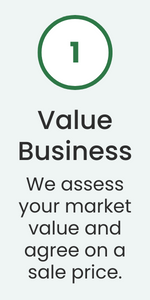
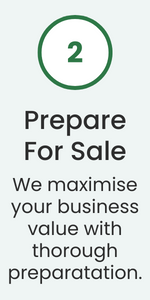
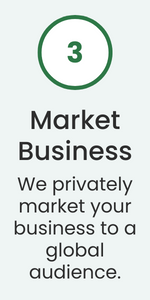
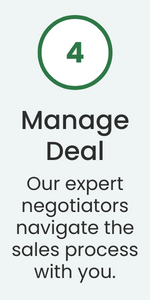
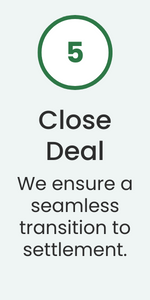
The exact process you would go through to sell your business in Perth WA depends on the size of it, the industry you’re in and how much time you have for the sales process. However in most circumstances, the sales journey typically goes as follows:
1 – Engage a professional to determine your businesses market value
We recommend determining how much your business is worth as the first step. Armed with this number you can then make a decision on how you would like to proceed. If the number is not high enough for your plans like retirement or buying another business or asset, you may decide to hold off selling for the time being. Working on your business until it’s at a point that would work you for you. You may choose to engage a professional Exit Advisor to assist in this value building process.
If the number is something that would work for you, you can then move on to the next step in the sales process.
We recommend using a professional such as accountant, a business broker or a business valuer to complete the appraisal for your business. The process will include sharing your recent financial statements for analysis and answering a few questions about your company. Costs are typically $1,000 – $6,000 depending on the complexity of your company. You can expect to get a report back in 7 – 30 days again depending on how complex your business structure is.
2 – Decide how you would like to go to market
If your market value is a number or range that would work for you, the next thing to do is determine how you’re going to go to market. You have a few options here.
One, you could directly approach someone you think may be interested in purchasing your business. This may be an employee or a competitor that you think may have some interest or someone who has approached you about selling previously.
Two, you could decide to go to the open market, representing yourself as ‘For Sale By Owner’ across platforms like Facebook Marketplace or Gumtree. The benefit of this approach is less direct costs in that you don’t have to pay a professional like a Perth Business Broker any commission. However the downside is your time and indirect costs. Despite not paying sales commission, you may end up worse off overall than if you had engaged a sales professional who could maximise your sales price.
The third option is to engage a professional business broker like us at Morgan Business Sales to manage the sales process for you. The downside here is you will have to pay for the brokers services. However we consider what we do for a seller as cost positive. We get owners more money in their pocket even with our fees than if they had represented themselves. This comes from the additional buyers we’re able to attract and our ability to negotiate the price up.
3 – Prepare your business for sale
No matter which path you go down, your business will need to be organised so it’s ready to be transferred to a new owner. And you will need to package all of your information into a document so that a prospective buyer can better understand what you’re doing.
How detailed this needs to be depends on the buyers you think will be interested in your business. We do however always recommend to put as much effort as possible into this preparation. The least amount of friction required for someone to assess and take ownership of your business the better.
4 – Take your business to market
Now you have a strategy and a neatly packaged business ready to show to prospective buyers, the next step is to get it in front of them. How you do this will depend on your strategy. It may mean contacting a competitor directly for a chat, posting an advertisement on Gumtree or working with a business broker to get your business on the major ‘business for sale’ platforms like Seek Business, Commercial Real Estate and Bsale.
Buyers of businesses tend to fall into three categories. Individuals, industry buyers and private equity firms. The most likely buyer typically depends on the size of your business. If it’s worth less than $500k for example, the most likely buyer will be an individual. If it’s worth $2m+ it’s most likely to be an industry buyer. We recommend writing any advertisements with the buyer type in mind to give yourself the best chance possible to at getting their interest.
If you do get any enquiries, we highly recommend getting interesting parties to complete a confidentiality agreement (CA) before you release to them any sensitive information like tax returns. The last thing you want is your competition and/or staff to get access to important company data.
5 – Negotiate and accept the best offer
Ideally after you’ve gone to market, answered follow up questions from interested parties, conducted inspections if applicable you will receive offers for the sale of your business. The best case scenario being you receive multiple offers at around the same time so you can compare them.
The offers you receive will differ in their structure. They will have different prices, different time frames, some may request that you provide some finance (known as vendor finance), some will want you to continue to work in the business for a period of time. You will need to determine the best deal structure for your future plans. Keeping in mind that the highest price may not be the best offer.
A business broker, accountant or legal professional can be a great person to chat with at this stage to help you work through the and determine the most suitable offer.
Once you have decided on the one you like the most, we recommend going back to prospective buyer to negotiate further. Very rarely is their first offer their best offer. After some back and forth you will hopefully reach a mutually beneficial agreement and can accept the revised offer.
6 – Assist in due diligence
Commonly after an offer is accepted, the buyer will pay a deposit (typically 10% of the sale price) and then conduct a due diligence process to make sure everything you said about your business stacks up. Similar to a pest and building inspection when purchasing a house.
The most regular things to come under the microscope during due diligence are financials and legal agreements. The larger the business, the longer and more detailed this process is.
7 – Exchange contracts and settle
If both parties are happy after the due diligence process, a business can move to the legally binding exchanging of contracts. This is typically completed by the legal representatives of each of the clients.
You as the buyer will then receive the upfront money you accepted in your deal structure and can begin the transfer of the business and your role in whichever way you agreed upon. This may be shaking hands and walking away on the day, staying in for a period to help in the transition or staying in for a longer time to continue to play a role in the business. Either way you have successfully sold your business in Perth, well done!
The simple way to describe a business broker is as a real estate agent that specialises in selling businesses instead of houses.
In reality, the role of a business broker is more complex. A broker is typically much more involved than a real estate agent. Acting more like a corporate advisor to help business owners navigate through the daunting process of exiting their business.
Owners typically engage business brokers early on when they start to consider selling their business. Brokers can then give them an understanding of what their business may be worth and different options to move forward. Whether that be going to market soon, working on the business before going to market or pursuing an alternative exit option like selling their plant and equipment.
For owners who do decide to go to market, the role of a Perth Business Broker is to facilitate the transaction. They create a prospectus on the opportunity to present to enquirers, market the business for sale, manage buyer enquiries and ultimately work with the seller to get the best possible deal over the line.
When it comes to selling their business, owners have options. They could sell it themselves, sell through their accountant if that is something they offer or sell through a professional, specialist business broker like Morgan Business Sales.
In our opinion, going to market with a business broker is the best solution for most circumstances. Like getting a plumber to fix a leaking tap, business brokers have the specific expertise and experience to get the desired outcome as effectively and as efficiently as possible.
A few key ways where business brokers add value are:
Similarly to a real estate agent, business brokers in Perth typically get paid a sales commission known in the industry as a ‘success fee’ for successful transactions they broker.
The commission percentage varies depending on the size of the business and the perceived complexity of a deal, however it typically falls somewhere between 5% – 10% of the final sales price.
Commission and other fees are negotiated prior to any work commencing and are contracted in on the agency agreement.
Other common ways that business brokers make money are through upfront listing fees and monthly retainer fees.
Upfront listing fees are typically $4,000 – $8,000 to put a business package together and advertise it.
Retainer fees are typically a monthly fee of $3,000 – $6,000 to work through the deal which is then added up and taken off the sales commission once a business settles.
Business brokers consider their fees to be cost positive for a business seller in that they make more than they charge plus extra than if a business owner had tried to manage a transaction themselves.
The value of a business can be determined in a number of different ways, however the most common methodology we use for 95% of our listings is known as the ‘multiple of earnings’ method.
The formula for this valuation method is average adjusted profit (EBITDA) x a ‘multiple number’. The multiple number used is determined on a case by case basis depending on recent sales in the industry and how risky an operation would be in an investors eyes. Let’s run through a simple example to help explain it:
Sarah owns a physiotherapy clinic. EBITDA was $1m in 2020, $1.1m in 2021 and $1.2m in 2022. Applying even weighting, the average adjusted profit number we would use in the multiple of earnings equation would be $1.1m.
For the multiple number side of the equation, statistics show that the most recent physiotherapy clinic sales have transacted at between a 3 and a 4 multiple. From a business risk perspective, Sarah’s clinic is the middle of the road. It has some strengths like a well established brand so it’s not worst in class (which would be a 3 multiple), however it has some risks stopping it from being best in class (4 multiple) too, like a short lease and an inexperienced management team. For this reason, Sarah’s multiple number would be 3.5.
To calculate how much Sarah’s business is worth, we would then multiply these numbers together. $1.1m average profits multiplied by a 3.5 would equal a valuation of $3.85m.
While this is overly simplistic, hopefully it provides a framework for you to better understand your businesses worth. For an accurate appraisal or valuation based on your real numbers and current market data, please don’t hesitate to schedule a call with an expert broker.
When it comes to selling a business, you have a number of options. You could sell it yourself or choose from a selection of professional Perth business brokers. So why should you choose Morgan Business Sales? These are the reasons we most commonly hear from clients who come to us from a competitor:
Unfortunately there’s no straight answer. We’ve had Perth businesses go under contract within a day and other WA listings take two years to sell.
In our experience, the two major determining factors are the price (fair vs overpriced) and the amount of buyer demand in the given industry.
Please book in a free consultation here if you would like an understanding of how businesses like yours have been performing recently in the market.
Our listings get published to all of Australia’s largest business for sale directories (Seek, Commercial Real Estate, Bsale etc).
In addition we promote businesses on our website, on social media (Google, Facebook, Instagram, LinkedIn) and to our email list of 30,000+ qualified buyers.
For larger businesses, we also conduct a direct marketing campaign to national and international groups who have the potential to be a great fit.
In short, no.
We understand how detrimental if can be for a business should their staff, customers, suppliers or competition find out that they’re looking to sell so we take confidentiality extremely seriously.
The first way we do this is by making our listings anonymous. No business names in our text. Stock photos instead of real photos. A general region for the location instead of suburb specific.
We then enforce that all interested parties complete a confidentiality/non-disclosure agreement. We can also optionally screen these enquirers over the phone and/or get your approval before sending them any identifying information.
This process adds friction for potential acquirers but it is important to ensure we’re doing everything we can to protect your sensitive information. It also has the added advantage of weeding out any non-serious enquirers who are just fishing for information.
In short, yes, we’re fully licensed to sell businesses in Perth.
Perth business brokers are regulated under Western Australian government real estate legislation. Our brokers are licensed in accordance with all acts and we’re in constant communication with authorities to ensure transactions are compliant.
In addition to this, all our brokers carry professional indemnity insurance.